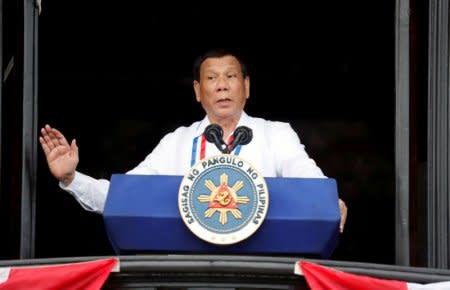Philippines' Duterte says to end mining 'one of these days'

Thomson Reuters
By Manolo Serapio Jr
MANILA (Reuters) - Philippine President Rodrigo Duterte said on Monday he would soon halt mining in the Southeast Asian nation because of the environmental damage it has caused, renewing his threat made nearly two years ago to shut down the industry completely.
Mining has been a contentious issue in the Philippines, the world's No. 2 nickel ore supplier after Indonesia, due to cases of environmental mismanagement.
"I will decide one of these days, I will end mining," Duterte told a public event in central Philippines, after citing destruction caused by mineral extraction.
"It is a very destructive activity though you would call it economic activity."
Duterte to mining firms in August 2016, about a month after assuming office, to follow tighter environmental rules or to shut down, saying the nation could survive without a mining industry.
The fiery leader has often criticized the mining industry since then but had not issued renewed threats to shut the industry for good until Monday.
After taking office, Duterte's government led by former Environment and Natural Resources Secretary Regina Lopez began an audit of the country's mines. Lopez then ordered the closure or suspension of 27 -- or more than half the total number -- of mines in the Philippines for environmental breaches.
Last month, a government panel cleared 23 of those mines for complying with state regulations.
There are 50 operating mines in the Philippines, 30 of which extract nickel ore which is mostly shipped to China.
But the industry contributes less than 1 percent to gross domestic product with only 3 percent of 9 million hectares identified by the state as having high mineral reserves.
(Reporting by Manolo Serapio Jr.; Editing by Edmund Blair)
See Also:

 Yahoo News
Yahoo News 